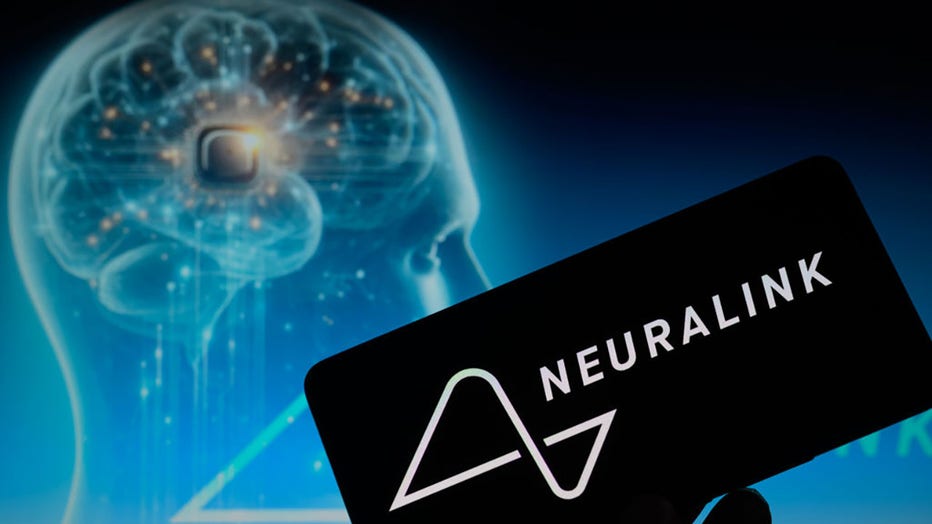Neuralink's 1st human patient can control mouse with thoughts, Elon Musk says
FILE - Elon Musk speaks about anti-Semitism online at the EJA conference at the DoubleTree by Hilton in Krakow, Poland, on Jan. 22, 2023. (Photo by Klaudia Radecka/NurPhoto via Getty Images)
Neuralink founder Elon Musk on Monday shared an update on the first human patient to receive one of the company’s cybernetic implants in their brain.
During a Spaces event on X, the platform formerly known as Twitter, the billionaire CEO said the patient is able to control a computer mouse with their thoughts.
"Progress is good, and the patient seems to have made a full recovery, with no ill effects that we are aware of. Patient is able to move a mouse around the screen by just thinking," Musk said.
Musk added that Neuralink is now trying to get as many button clicks as possible from the patient, who first received the implant in January.
Neuralink's first human trial

Can Neuralink chip improve paralysis treatment?
Marco Baptista, Chief Scientific Officer with the Christopher & Dana Reeve Foundation, joins LiveNOW's Austin Westfall to explain how Elon Musk's Neuralink brain implant could improve paralysis treatment.
Neuralink, based in Fremont, California, is one of many groups working on linking the nervous system to computers – efforts aimed at helping treat brain disorders, overcoming brain injuries and other applications.
In May, Neuralink received approval from the U.S. Food and Drug Administration to proceed with human trials for brain implants. Last fall, the company announced that it was seeking volunteers, saying the ideal candidate is a quadriplegic adult under age 40.
Neuralink’s device is about the size of a large coin and is designed to be implanted in the skull, with ultra-thin wires going directly into the brain.
It’s also meant to stay there for years, reading and analyzing the person’s brain activity, and then relaying that information wirelessly to a nearby laptop or tablet.
"Initial users will be those who have lost the use of their limbs," Musk posted previously on X about the technology. "Imagine if Stephen Hawking could communicate faster than a speed typist or auctioneer. That is the goal."
Hawking, the late theoretical physicist, suffered from Lou Gehrig's disease, a rare condition that causes paralysis.

The Neuralink logo is being displayed on a smartphone with a brain chip visible in the background in this photo illustration on Jan. 30, 2024. (Photo by Jonathan Raa/NurPhoto via Getty Images)
Musk, who is the CEO of Tesla and SpaceX, launched Neuralink in 2016. Musk had sought approval for human trials since 2019, but in early 2022, Neuralink’s application was rejected. The company has since worked through concerns expressed by the FDA over the safety of the implant.
The current study of the device will take approximately six years, the company says in documents online. During this time, participants will have regular follow-ups to monitor progress and to ensure the device is working as intended.
This story was reported from Cincinnati. FOX Business contributed.

